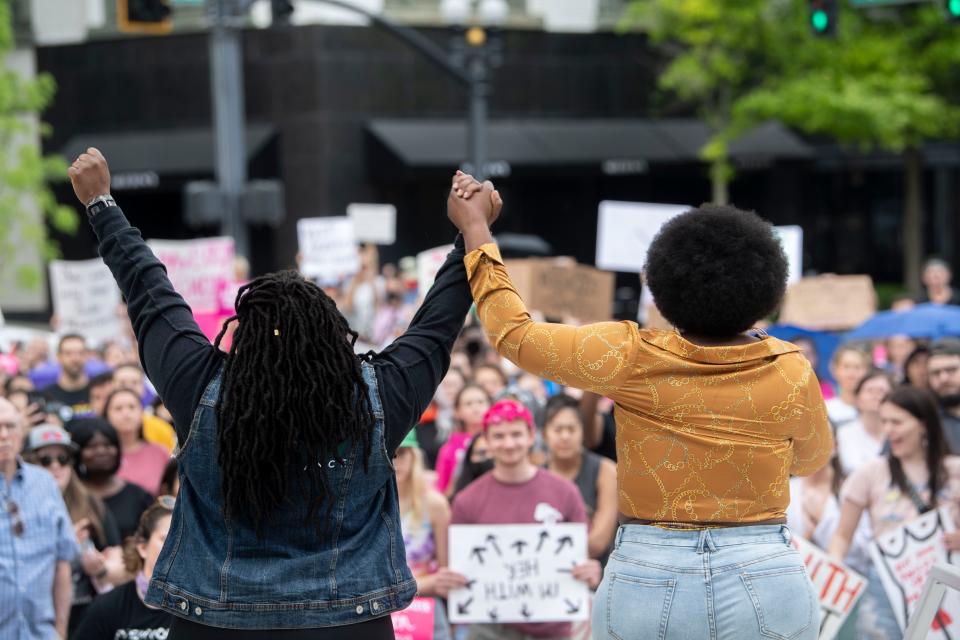Roe v. Wade’s future looks bleak. What does this mean for Tennesseans? | Opinion
Earlier this month, a draft decision to overturn Roe v. Wade was leaked from the United States Supreme Court. The decision would essentially revoke federal protection of an individual’s right to choose, leaving abortion laws up to each state. In Tennessee, it would mean the end of legal abortion.
Tennessee is one of 13 states that has a trigger law that will ban abortion if Roe v. Wade is overturned. Passed in 2019, the “Human Life Protection Act” would go into effect 30 days after a decision to overturn Roe v. Wade. The law would ban abortion in virtually all circumstances, including rape and incest, except in cases where it was necessary to save the patient’s life — in which case the onus would be on the doctor to prove the abortion was required.

This is not a concern just for those who don’t want children, but also for anyone considering raising a family. If a fetus is diagnosed with a life-limiting medical condition, under the Tennessee trigger law, individuals would be legally forced to continue the pregnancy to term, potentially causing unnecessary physical and emotional trauma. As 60% of those who receive abortions are already parents, it’s clear that abortion plays an important part in family planning and women’s health care.
Hear more Tennessee voices: Get the weekly opinion newsletter for insightful and thought-provoking columns.

Your state. Your stories. Support more reporting like this.
A subscription gives you unlimited access to stories across Tennessee that make a difference in your life and the lives of those around you. Click here to become a subscriber.
Recent research also shows that there could be negative consequences for denying access to abortion, including poorer health outcomes and negative developmental and socioeconomic impacts for existing children. Those forced to carry a pregnancy to term would face giving birth and raising children in a country with poor maternal health outcomes, no universal parental leave and frequently inaccessible childcare. A 2021 Brookings report, though, explains that “abortion legalization increased women’s education, labor force participation, occupational prestige, and earnings and … all these effects were particularly large for Black women.”

And let’s be clear: abortions will continue, even if made illegal. Scholars estimate that prior to Roe, 20-25% of pregnancies ended in abortion. Between 1969-1973, the legalization of abortion decreased maternal mortality rates among Black women by 30-40%. While medical advances in medication abortion would likely prevent many of these unsafe abortions from returning, the Black maternal mortality rate nationwide, and especially in Tennessee, is still too high. If Roe is overturned, those most likely to have poor health outcomes — including women of color, individuals with low incomes and members of the LGBTQ+ community — will still likely suffer the most.
This trigger law could be just the start if Roe falls. A bill modeled after the Texas abortion law and advanced in the Tennessee House in March — before being taken off notice for the calendar in the Health Committee — would allow citizens to sue doctors accused of performing abortions for $10,000. Given that Roe is considered the foundational right-to-privacy case, Supreme Court cases that rely on this precedent, including Obergefell v. Hodges, which legalized same-sex marriage, could be at risk too.
So what can we do now? First, pick up the phone and call your elected representatives. Consider donating to organizations in Tennessee promoting abortion access, including CHOICES – Memphis Center for Reproductive Health, Mountain Access Brigade, Access Reproductive Care Southeast and the Knoxville Center for Reproductive Health. It will take all of us to stand together and take concerted action to prevent the possible overturning of Roe and Tennessee’s trigger law from negatively affecting Tennesseans.
Christine Dickason is pursuing her Ph.D, in education policy at Vanderbilt University and is originally from Collierville, Tennessee.
This article originally appeared on Nashville Tennessean: Roe v. Wade’s future looks bleak. What does this mean for Tennesseans?

